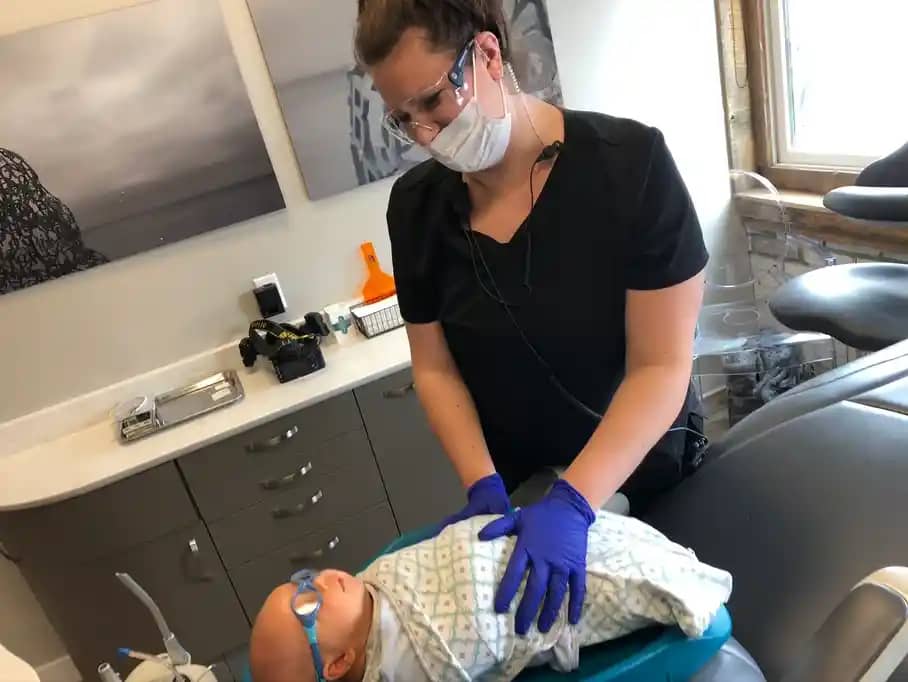Within this post I want to touch on how the frenulum, otherwise known as “that tiny cord under the tongue”, can make such a negative impact on nursing, breathing, sleeping, and more!
We all have a frenulum, or frenum, underneath the tongue (as well as from our upper lip to our upper jaw). It connects the tongue to the floor of the mouth and it is NORMAL anatomy unless it causes restricted movement of the tongue. Fascia is an entire network of connective tissue that holds our bodies together! In normal human development the fibrous connective tissue called fascia separates while in utero. Starting right around the second trimester the tongue begins to separate from the floor of the mouth. However, sometimes it doesn’t disconnect as far as it needs to, resulting in a taut, restrictive cord… a “tongue tie” or ankyloglossia.
If this string of tissue is so tight that it restricts normal movement we learn very early to compensate in order to function. These compensations can lead to a long list of problems such as feeding and speech difficulty, abnormal jaw development, breathing and sleep disorders, and poor posture and alignment. Not all frenums are abnormal and certainly not all of them require intervention. However, if there are symptoms that don’t resolve on their own or therapy is not possible due to the tethered oral tissues, treatment such as a frenectomy or functional frenuloplasty may be in order.
We are very careful in our diagnosis and intervene whenever the problem is identified. That can be anywhere from infancy to late adulthood. We believe STRONGLY in an interdisciplinary, team approach to addressing these types of issues. A tongue tie “clip” without proper pre and post operative myofunctional therapy and body work is unlikely to help the situation and can make the problem much worse. Our approach includes some combination of the following team members in order to achieve optimal results: physical therapists, International Board Certified Lactation Consultants (IBCLCs), occupational therapists, chiropractors, oromyologists or myofunctional therapists, craniosacral therapists, speech therapists, feeding specialists, orthodontists, and physicians. The more the merrier!
If you have questions, concerns, or would like to make an appointment to meet with our team, please reach out. We’d be honored to help you on your journey to healthier breathing, sleeping and living!





